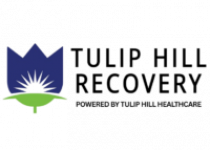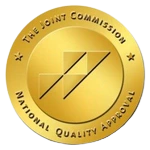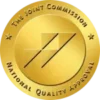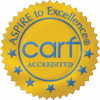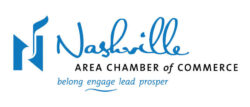How To Pay For Rehab
Making the decision to get help for addiction is one of the most important—and often, most life-changing—steps someone can take. Rehab offers the structure, expert guidance, and medical support that make long-term recovery possible, but even after someone decides they’re ready for change, another big question often stands in the way: How do you actually afford it?
At first glance, the cost of rehab can feel overwhelming. Between detox, inpatient or outpatient treatment, therapy, medications, and ongoing support, the expenses can start to add up fast.
It’s no surprise that many people—and families—find themselves wondering if they’ll be able to cover it all. In some cases, that uncertainty can even cause people to delay getting the help they need.
The good news is, paying for rehab doesn’t have to be impossible.
Whether you’re wondering how to pay for drug rehab without insurance or trying to stretch a tight budget, there are more resources out there than most people realize.
From private and public insurance coverage to financing options, scholarships, grants, and state-funded programs, there are real, practical solutions that can bridge the financial gap.
This guide is here to break it all down clearly and simply. We’ll walk you through the different ways to pay for rehab, including how insurance works, what financing options might be available, and how to find programs that fit your situation.
Our goal is simple: to make sure financial worries don’t stand between you and someone you love, and to get the help that’s needed.
Understanding the Cost of Rehab
When considering how to pay for drug rehab, it is essential to understand the exact costs involved.
The price of rehab varies widely depending on the type of care, facility location, and services offered.
Knowing these factors upfront can help you plan better financially and choose a rehab program that meets your budget and recovery needs.
Inpatient vs. Outpatient Treatment
The most significant factor influencing rehab costs is whether you choose inpatient or outpatient care.
Inpatient rehab, where you live at the facility and have round-the-clock supervision, is typically more expensive due to its comprehensive nature, intensive care, and residential accommodations.
Costs for inpatient rehab in Tennessee often range between $10,000 and $30,000 for a standard 30-day program. High-end facilities or extended stays can significantly increase this number.
On the other hand, outpatient programs generally cost less, as patients continue living at home while attending treatment several days a week.
In Tennessee, outpatient rehab programs typically range from approximately $3,000 to $10,000, depending on the program’s length and the intensity of care provided.
Is Detox Needed?
Another major cost component is detoxification, or detox, which is typically the initial stage of addiction treatment.
Detox costs depend on the substance being treated and the level of medical supervision required.
Medically supervised detox can cost anywhere from $500 to $1,500 per day, lasting usually three to seven days.
Individual vs. Group Therapy
Individual and group therapy sessions are another factor that influences the pricing of rehabilitation. Many programs include therapy within the overall cost, but others may bill separately.
Private sessions typically range from $50 to $250 per hour, while group sessions tend to be more affordable.
Location and Treatment Types
Rehabilitation costs vary significantly based on the facility’s location and the types of treatment offered.
Facilities located in urban areas or with extensive amenities, such as private rooms, wellness programs, or luxury services, often come with higher price tags.
Programs offering specialized treatments, dual-diagnosis support, or innovative therapies tend to be more expensive.
Insurance Options for Paying for Rehab
One of the most effective ways to manage the cost of addiction treatment is through health insurance coverage.
Understanding how to pay for rehab through insurance can ease the financial burden associated with substance abuse recovery programs.
Whether you have private insurance, Medicare, Medicaid, or another type of insurance, coverage often includes essential rehabilitation services.
Private Health Insurance Plans
Private insurance plans, whether obtained through an employer or purchased independently, frequently include some level of coverage for addiction treatment.
Many insurance companies recognize addiction as a medical condition, meaning treatment services like detox, inpatient programs, outpatient care, therapy sessions, and medication-assisted treatment (MAT) are often covered, at least partially.
Policies vary widely, though, so understanding the specifics of your individual coverage is crucial.
Federal Insurance Programs
Additionally, federal health insurance programs like Medicare and Medicaid provide significant coverage for drug and alcohol rehabilitation.
Medicare typically covers inpatient treatment, outpatient therapy, and medically necessary treatments for substance abuse disorders.
Medicaid coverage for rehab can vary by state.
In Tennessee, services often include comprehensive addiction treatment, detox programs, therapy, and ongoing recovery support.
The Affordable Care Act (ACA) marked a milestone in the coverage of addiction treatment.
Under the ACA, substance abuse treatment was identified as one of the ten essential health benefits, meaning that all insurance plans offered on ACA marketplaces must provide coverage for addiction treatment services.
This development has made it substantially easier and more affordable for individuals struggling with addiction to receive the necessary care without excessive out-of-pocket costs.
PPO vs. HMO Plans
When navigating the payment options for drug rehab, it’s helpful to understand the differences between various insurance types, such as Preferred Provider Organizations (PPOs) and Health Maintenance Organizations (HMOs).
PPO plans typically offer more flexibility, allowing patients to choose from a broader network of treatment providers, including those outside of the network.
HMOs typically require patients to select treatment providers within a defined network to receive full coverage, which can limit your choices but may result in lower overall costs.
To clearly understand your insurance benefits, it’s essential to contact your insurance provider directly. When reaching out, consider asking the following key questions:
- Does my policy cover inpatient and outpatient addiction treatment services?
- What rehab facilities are covered under my plan?
- What are my deductibles and out-of-pocket maximums related to addiction treatment?
- Do I require prior authorization or referrals from a physician to receive rehab coverage?
- Are there limits on the length of treatment or specific types of treatment covered?
Additionally, treatment centers like Tulip Hill Recovery can help you verify your coverage details, providing further peace of mind.
Related Blog Resources
At Tulip Hill Recovery, we believe that education is a powerful tool in recovery. To help you better understand the effects of addiction and the path to healing, we’ve created several in-depth resources you can explore:
Therapies Used in Drug & Alcohol Rehab near Brentwood, TN
At Tulip Hill Recovery, our treatment philosophy goes beyond simply helping clients stop using drugs or alcohol—we focus on equipping each person with the tools, insight, and support they need to build a meaningful life in recovery.
That’s why we combine evidence-based therapies with holistic, person-centered practices to treat the whole individual: mind, body, and spirit.
As one of the leading drug and alcohol rehab centers near Brentwood, TN, and a trusted resource for individuals exploring drug treatment centers in Brentwood, TN, we offer a wide range of modalities to meet each client’s needs and preferences.
-
Cognitive Behavioral Therapy (CBT), Dialectical Behavior Therapy (DBT), and EMDR
These three therapeutic models form the foundation of our clinical work:
- CBT helps clients identify and shift unhealthy thought patterns and behaviors that fuel substance use.
- DBT supports emotional regulation, distress tolerance, and healthier relationships—especially for those with co-occurring mental health challenges.
- EMDR (Eye Movement Desensitization and Reprocessing) is a powerful trauma therapy that allows clients to safely reprocess painful experiences, often at the root of their addiction.
Together, these therapies help clients gain control over their emotions, break destructive cycles, and create space for healing and growth.
-
Family Therapy and Codependency Recovery
Addiction doesn’t just affect the person using—it deeply impacts the people around them.
We offer family therapy to help rebuild trust, improve communication, and support the healing of the family unit.
We also provide specific guidance for codependency recovery, giving loved ones tools to set healthy boundaries and move forward with clarity and compassion.
-
Experiential Therapies: Art, Movement, and Mindfulness
Traditional talk therapy is effective, but healing also happens through expression, creativity, and physical connection. That’s why we integrate experiential therapies such as:
- Art therapy for emotional release and self-discovery
- Movement and somatic practices to reconnect with the body and release tension
- Mindfulness and meditation to reduce anxiety and foster internal peace
These approaches help clients explore new ways to cope, self-reflect, and find joy in recovery.
-
Medication-Assisted Treatment (MAT)
For some clients, Medication-Assisted Treatment plays a key role in stabilizing early recovery, especially for opioid and alcohol use disorders.
We offer MAT when clinically appropriate, using FDA-approved medications like Suboxone, Vivitrol, or buprenorphine as part of a larger treatment plan with therapy, accountability, and support.
MAT is never a one-size-fits-all solution. At Tulip Hill Recovery, we evaluate each client’s needs to ensure that medications are used safely, ethically, and with long-term healing in mind.
-
Support Group Connections
Staying connected is one of the most important aspects of lasting recovery. We encourage clients to participate in local support groups and peer-led programs, including:
- Alcoholics Anonymous (AA)
- Narcotics Anonymous (NA)
- Celebrate Recovery, a Christ-centered 12-step group with a strong presence.
- Recovery Dharma, which combines mindfulness and Buddhist principles with addiction recovery
At Tulip Hill Recovery, we help you establish ongoing support so you’re never walking this path alone.
Insurance and Payment Options
For many people seeking addiction treatment, insurance coverage is one of the biggest concerns.
The good news is that most major insurance providers offer coverage for rehab services, but the specifics of that coverage vary by individual policy.
At Tulip Hill Recovery, we work with a wide range of plans from insurers to help make treatment as accessible and affordable as possible. However, what’s covered depends on your policy, including:
- The type of treatment approved (detox, PHP, IOP, aftercare).
- The length of coverage for rehab programs.
- Out-of-pocket costs, such as copays or deductibles.
Our Brentwood drug rehab is in-network with many major health insurance providers. We’ll work directly with your insurance company to verify your benefits and help you understand what’s covered, including detox, PHP, IOP, and outpatient services.
Many people assume insurance will not cover rehab; hence, they often don’t think it’s an option for them. However, most insurance plans do cover addiction treatment. For this reason, it’s worth calling the company and asking any questions a person may have.
Additionally, the customer can find out what options they have and how to pay for rehab. They can also discover what their out-of-pocket costs may be. In fact, if they have already met their deductible, rehab near Brentwood, Tennessee may be free or low-cost.
If your insurance only partially covers rehab or doesn’t cover it at all, Tulip Hill provides alternative financial options to ensure that cost isn’t a barrier to treatment.
- Private Pay: Direct payment plans with transparent pricing.
- Financing Options: Payment plans that make treatment more manageable.
Regardless of your financial situation, Tulip Hill Recovery is committed to helping Brentwood residents get the care they need.
Yes, Your Insurance Covers Detox and Rehab Treatment.
Get Directions to Tulip Hill Recovery
Staying in the same environment where addiction originally develops can make it harder to break old patterns. Seeking addiction treatment away from home can be one of the best decisions for your long-term recovery.
Benefits of Going to Murfreesboro for Rehab:
- Privacy & anonymity—stepping away from familiar surroundings allows individuals to focus on healing without outside pressures.
- Fewer local triggers—avoiding the same social circles and environments that contributed to substance use can reduce the risk of relapse.
- A fresh start—being in a new setting can shift perspective and help individuals fully commit to the recovery process.
Start Drug and Alcohol Rehab Today at Tulip Hill Recovery
If you or someone you love is struggling with addiction, don’t wait another day to take that first step. At Tulip Hill Recovery, we provide the compassionate care and clinical expertise you need to reclaim your life and start fresh.
At Tulip Hill Recovery in Murfreesboro, we provide compassionate, evidence-based care that helps individuals overcome addiction and rebuild their lives.
Whether you need detox, structured treatment, or ongoing support, our team is here to guide you every step of the way.
Choosing treatment outside of Brentwood can be an opportunity for a fresh start, offering privacy, distance from triggers, and a focused environment for recovery.
Frequently Asked Questions about Drug Rehab near Brentwood, TN
The right level of care depends on your individual situation and needs.
-
If you require medical supervision for withdrawal, our medically supervised detox is the safest first step.
-
If you need structured, daily support but don’t need 24/7 care, PHP is a good choice — offering intensive therapy during the day without overnight stay.
-
If you need flexibility to balance work, school, or family commitments while getting treatment, IOP provides several sessions per week (often evenings or days) with a focus on relapse prevention, therapy, and peer support.
Yes — Tulip Hill works with most major insurance providers across Tennessee. We offer a free, confidential insurance verification to help you determine your coverage and understand any potential out-of-pocket costs.
If insurance doesn’t cover everything, Tulip Hill offers private pay options and financing/payment plans to help make care accessible/
Families are strongly encouraged to participate. We provide family therapy sessions and education to help loved ones understand addiction, improve communication, rebuild trust, and support long-term recovery.
Seeking treatment away from your immediate environment can offer several benefits:
- Privacy and anonymity, allowing individuals to focus on recovery without community or social pressures.
- Reduced exposure to local triggers — avoiding the same social circles or environments that may contribute to substance use makes relapse less likely.
- A fresh start — new surroundings can shift mindset, help break old habits, and foster a stronger commitment to recovery.
Tulip Hill provides a comprehensive, holistic approach including:
- Individual therapy (e.g., Cognitive Behavioral Therapy, Dialectical Behavior Therapy) Tulip Hill Recovery
- Group therapy for peer support and shared experiences Tulip Hill Recovery
- Family therapy to rebuild relationships and heal family dynamics Tulip Hill Recovery
- Trauma-informed care (including EMDR therapy for trauma/PTSD) Tulip Hill Recovery
- Holistic wellness supports, such as mindfulness, meditation, yoga, nutrition counseling, and experiential activities to support emotional and physical health. Tulip Hill Recovery
Start Your Journey to Healing Today

Call or message us

Free assessment

Insurance check

Choose a start date
Get Family Support Now
Supporting Families Through Recovery
We understand addiction affects the whole family. Our comprehensive family program helps rebuild trust and restore relationships.
Weekly Family Therapy Sessions
Educational Workshops
Support Groups
Communication Skills Training
 |
Medically Reviewed By:
Board-Certified Psychiatrist and Addictionologist
|
 |
Clinically Reviewed By:
Board Certified Clinical Social Worker
|
Our Verifications & Affiliations
Addiction Treatment Therapies
Yes, Your Insurance Covers Detox and Rehab Treatment.
Get Family Support Now
Supporting Families Through Recovery
We understand addiction affects the whole family. Our comprehensive family program helps rebuild trust and restore relationships.
Weekly Family Therapy Sessions
Educational Workshops
Support Groups
Communication Skills Training
